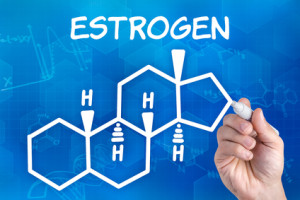 A new study, which was carried out by Joel S. Finkelstein, MD, and his colleagues at the Massachusetts General Hospital, Boston, has suggested a change in the approach used for the evaluation and management of hypogonadism in males. According to this study – which is published in the New England Journal of Medicine (2013;369:1011-1022) – while a deficiency in testosterone levels in males result in decrease in muscle size, lean body mass , and strength, deficiency of estrogen in males is primarily responsible for increase in body fat experience by men suffering from hypogonadism. The deficiency of estrogen and testosterone is responsible for the decrease in sexual drive in hypogonadal males.
A new study, which was carried out by Joel S. Finkelstein, MD, and his colleagues at the Massachusetts General Hospital, Boston, has suggested a change in the approach used for the evaluation and management of hypogonadism in males. According to this study – which is published in the New England Journal of Medicine (2013;369:1011-1022) – while a deficiency in testosterone levels in males result in decrease in muscle size, lean body mass , and strength, deficiency of estrogen in males is primarily responsible for increase in body fat experience by men suffering from hypogonadism. The deficiency of estrogen and testosterone is responsible for the decrease in sexual drive in hypogonadal males.
The researchers discovered that more than 80 percent of male estrogen is derived from the conversion of testosterone to estrogen. As a result, the level of testosterone circulating in the bloodstream is hugely responsible for the amount of estrogen that will be found in the blood. Therefore, a decline in serum testosterone will also result in a deficiency of serum estrogen. Thus, low level of serum estrogen is partly responsible for some of the hypogonadal symptoms in men. However, the role of estrogen as a contributing factor in male hypogonadism is mostly neglected by physicians.
The researchers at the Massachusetts General Hospital, Boston made use of 400 healthy men between the ages of 20 – 50 years for the study. The subjects were divided into two groups: 198 men were placed in group 1 and 202 men were placed in group 2. Groselin acetate was administered to the subjects in group 1 to suppress the production of endogenous testosterone and estradiol. Group 1 men were further subdivided into 5 groups that were given a placebo gel, 1.25, 2.5, 5, or 10 grams of testosterone gel daily for 16 weeks. The second group was given groselin acetate, anastrozole (to prevent the conversion of testosterone to estradiol in the blood), and placebo gel or testosterone gel.
Group 1 men showed a significant increase in body fat at the end of the study. However, the increase in body fat is more in men that received placebo, 1.25, and 2.5 grams of testosterone gel than in those that received 5 or 10 grams of testosterone gel. There was a significant reduction in lean body mass in the men that were administered with placebo or 1.25 grams than in those placed on higher dosages of testosterone gel. A decrease in leg press strength was observed only in subjects placed on placebo gels.
All men in group 2 show a predominant increase in body fat. The researchers, however, observe a unique trend in the increase in body fats in the men in group 2. The amount of added body fats was similar in subjects placed on placebo gel and 1.25, 2.5 and 5 grams of testosterone gel daily. This finding was attributed to the effect of estrogen on men. Lean body mass decreased significantly in all the different sub-groups in group 2.
The sexual drive of men in group 1 decreases correspondingly with the amount of testosterone doses. However, erectile dysfunction was common in men who were administered with placebo gel than those placed on testosterone gel. The same trend was also observed in group 2 men.
Give us $20 and 20 minutes and find out your “Vitamin T”.
Contact us now to schedule an appointment and find out your “Vitamin T”. We have multiple locations across ten states with more offices opening soon. Find the one closest to you now.
